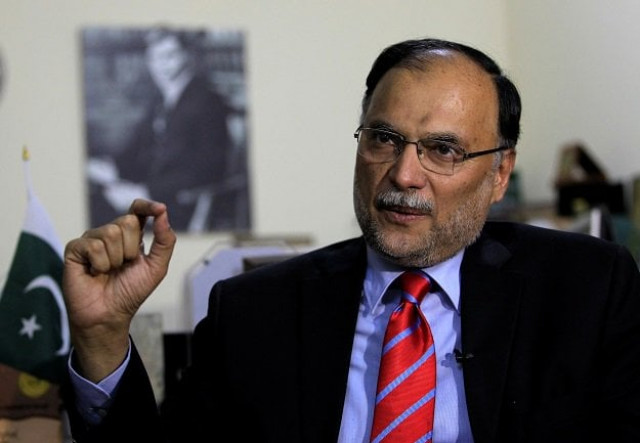Competitiveness key to Pakistan's global standing
Iqbal highlights productivity, quality, innovation as triggers for growth

Minister for Planning, Development and Special Initiatives Ahsan Iqbal on Thursday mentioned increased productivity, quality and innovation (PQI) as the instant solution to the economic difficulties faced by the country in the absence of required investment.
"These (PQI) are the basic pillars on which the national competitiveness of any country depends," he said while addressing the inaugural session of the two-day National Productivity, Quality and Innovation Summit-2024.
The summit, with the theme "Driving Growth through Excellence in Productivity, Quality and Innovation," has been organised by the Ministry of Planning, with the PQI identified as the key driver for achieving sustainable economic growth and enhancing Pakistan's global competitiveness.
Narrating success stories of developed countries that attained economic prosperity, the planning minister said they first adopted key drivers of progress – productivity in the 1970s, quality in the 1980s and innovation in the 1990s, all triggered by "knowledge explosion."
"Competitiveness is not what you do with what you have inherited; competitiveness is all about what you are capable of creating," Iqbal quoted Michael E Porter, considered the Father of Competitive Strategy.
He regretted that Pakistan was ranked 110th in the National Competitiveness Index out of 140 countries, as reported by the World Economic Forum, adding "unfortunately, we stand nowhere."
The planning minister stressed the need to improve capabilities and follow international trends and principles, "if we want to be included in the leading economies of the world."
He urged summit participants to explore ways for all sectors including public, private, industry, agriculture and services to move forward in line with the principles of enhanced PQI.
"The key to tackling the economic challenges is export-led economic growth, which can open the door to success by increasing exports from the current $30 billion to $100 billion," he remarked. Iqbal told the audience that friendly countries, especially Gulf states including Saudi Arabia, the United Arab Emirates, Kuwait and Qatar, had an overall investment portfolio of $29 billion in diverse fields in Pakistan.
He said Pakistan was turning around due to the difficult decisions taken by the government at the cost of its "political capital." He mentioned the decrease in inflation, increased economic growth, a record-breaking surge at the Pakistan Stock Exchange, international recognition by rating agencies and the initiation of CPEC phase-II.


















COMMENTS
Comments are moderated and generally will be posted if they are on-topic and not abusive.
For more information, please see our Comments FAQ